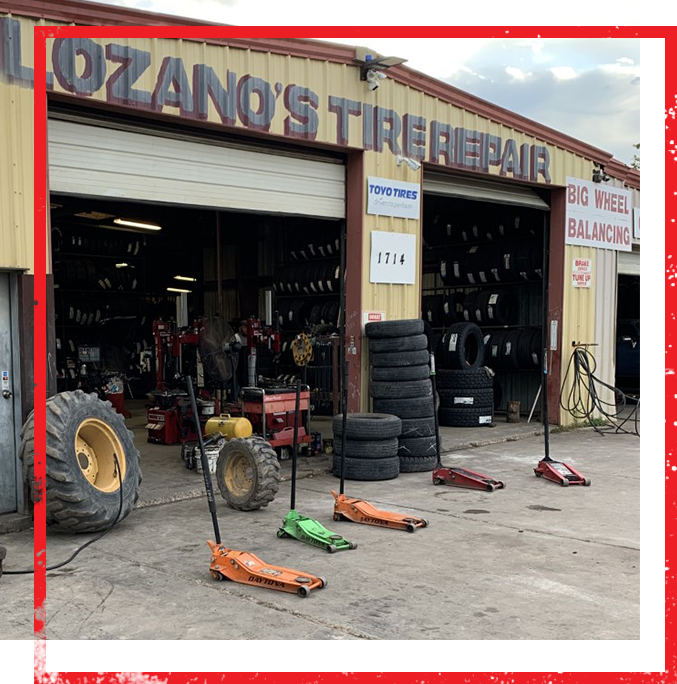Unlock Cost Savings at Morris Tire: Your Premier Resource for Discount Rate Tires Morris IL
Unlock Cost Savings at Morris Tire: Your Premier Resource for Discount Rate Tires Morris IL
Blog Article
The Environmental Benefits of Proper Tire Upkeep
Maintaining proper tire treatment is usually ignored, yet its influence on the setting is profound. From reducing gas consumption to lowering exhausts result, the benefits are significant. Correct tire upkeep not just prolongs the life expectancy of tires yet likewise reduces landfill waste and adds to improved air top quality. The interconnectedness of these benefits highlights the critical function that simple maintenance practices can play in advertising environmental sustainability.
Reduced Fuel Usage
Improving tire upkeep techniques can lead to a considerable decrease in gas usage for vehicles. According to the U.S. Department of Energy, underinflated tires can lower gas mileage by 0.2% for every 1 psi decrease in stress in all 4 tires.
In enhancement to tire stress, regular tire rotations and positionings likewise play a vital duty in fuel effectiveness. Unevenly worn tires can increase fuel intake as the engine functions harder to keep rate and grip. By maintaining correct placement and turning tires at suggested periods, motorists can make certain also prolong the life and wear of their tires, ultimately saving fuel and reducing their carbon impact.
Extended Tire Life-span
Extending the life expectancy of tires is a vital facet of effective car upkeep practices that can produce price savings and environmental advantages over time. By effectively preserving tires, motorists can dramatically extend their usability, lowering the regularity at which new tires require to be produced and old ones thrown away. This not just saves important resources but additionally lessens the energy and discharges linked with tire manufacturing and disposal processes.
Regularly inspecting tire pressure, revolving tires, and making sure proper positioning are vital actions in prolonging tire life-span. Sufficient step deepness is important for optimal traction and safety and security, yet it also plays a duty in exactly how lengthy tires can be utilized before requiring replacement. Furthermore, avoiding hostile driving habits that increase tire wear, such as severe stopping and doglegs, can even more boost tire sturdiness.
Inevitably, boosting the longevity of tires through positive upkeep not only profits the environment by decreasing waste and preserving sources however likewise results in cost financial savings for car proprietors by postponing the demand for brand-new tire acquisitions.
Reduced Emissions Output
Reliable tire maintenance practices add to a reduction in discharges result, aligning with environmental sustainability goals in the vehicle industry. Appropriately filled with air tires, frequently rotated and lined up, can improve gas effectiveness, therefore decreasing the total co2 exhausts from lorries. When tires are underinflated, the engine has to work tougher to move the automobile, bring about enhanced fuel consumption and higher emissions. By preserving ideal tire pressure levels, drivers can assist alleviate these unfavorable environmental impacts.
Additionally, properly maintained tires also boost grip and decrease rolling resistance, further boosting gas performance. This, in turn, lowers the quantity of exhaust gases released into the atmosphere. In addition, ensuring tires are effectively blown up and aligned can expand the life-span of the tires, minimizing the frequency of tire replacements and the associated environmental expenses of tire production and disposal.

Decreased Landfill Waste
Offered the positive influence of appropriate tire upkeep on minimizing emissions result, another substantial environmental benefit is the capacity for decreased land fill waste. By making sure that tires are appropriately blown up, straightened, balanced, and turned regularly, their life expectancy can be significantly extended.

Improved Air High Quality
Enhancing air quality through correct tire maintenance methods is a critical aspect of sustainable environmental stewardship. When tires are underinflated, they develop extra moving resistance, resulting in increased fuel consumption and higher emissions of damaging toxins such as carbon monoxide gas and nitrogen oxides. Correctly inflated tires not just enhance fuel effectiveness but additionally lower the amount of toxins released into the air.
In addition, properly maintained tires with proper step deepness and placement contribute to safer motoring conditions, reducing the probability of crashes that can cause the release of extra pollutants into the environment. By expanding the lifespan of tires with regular upkeep and rotation, fewer tires are discarded too soon, decreasing the environmental influence of tire disposal and production processes.
Final Thought
In verdict, proper tire upkeep provides countless ecological advantages. their explanation It is essential for individuals to prioritize tire upkeep as an easy yet efficient method to protect the setting for future generations.
Appropriate tire maintenance not only prolongs the life-span of tires but likewise reduces garbage dump waste and contributes to enhanced air quality - tire tracks morris il. By keeping proper placement and turning tires at recommended intervals, chauffeurs can guarantee also use and lengthen the life of their tires, ultimately saving gas and reducing their carbon impact
By appropriately preserving tires, motorists can substantially lengthen their usability, lowering the regularity useful link at which new tires need to be manufactured and old ones disposed of.Regularly inspecting tire pressure, revolving tires, and making certain appropriate placement are crucial steps in extending tire life-span. Additionally, guaranteeing tires are correctly pumped up and straightened can prolong the life-span of the tires, minimizing the frequency of tire substitutes and the associated ecological prices of tire manufacturing and disposal.
Report this page